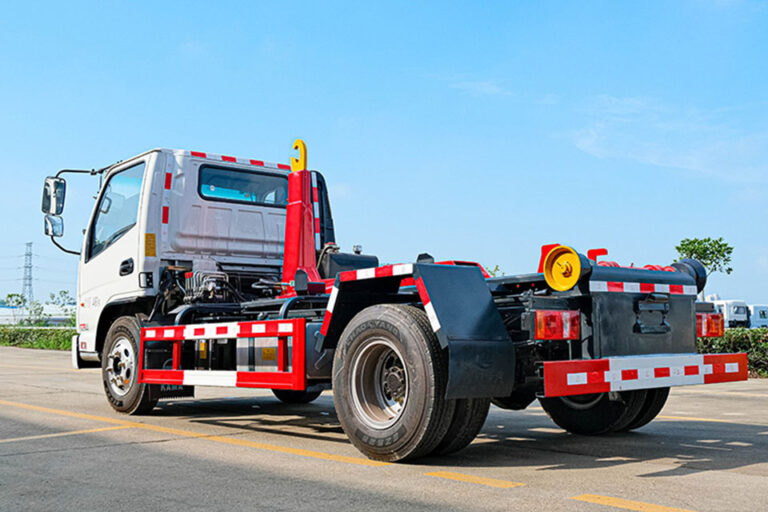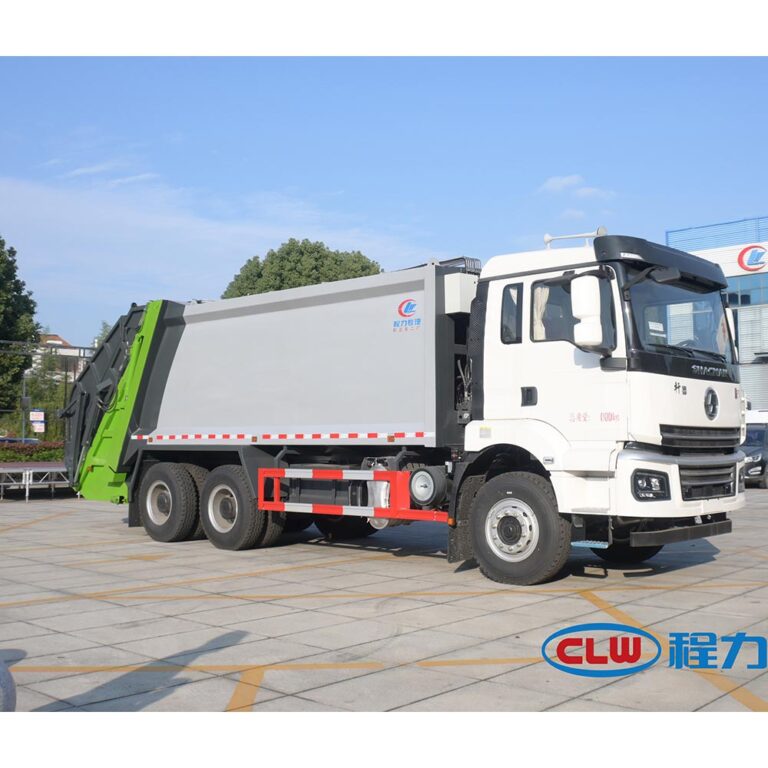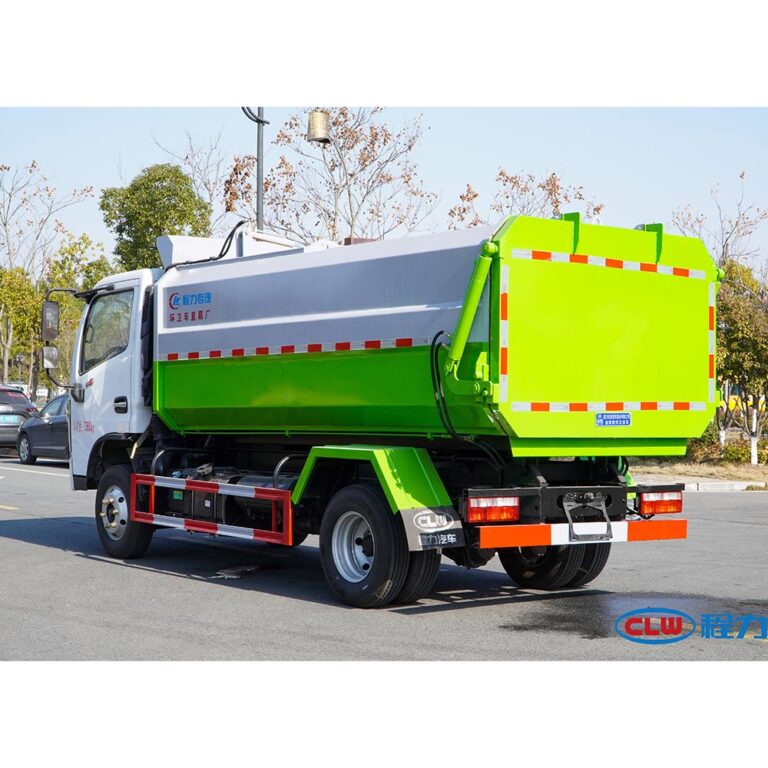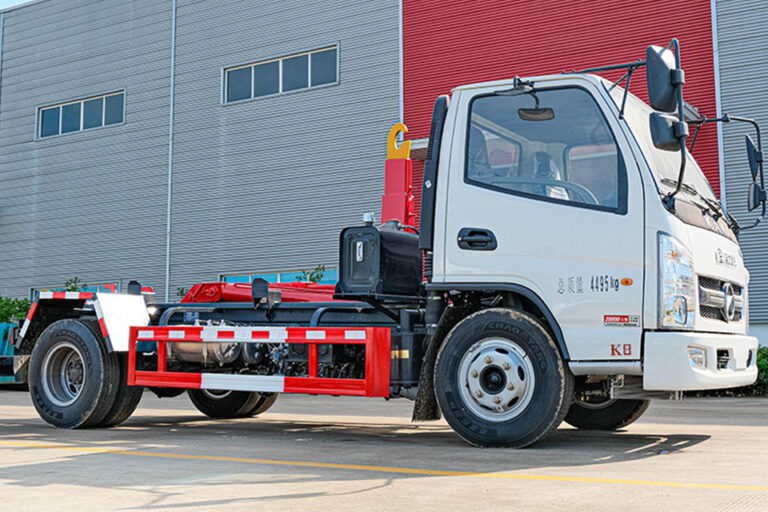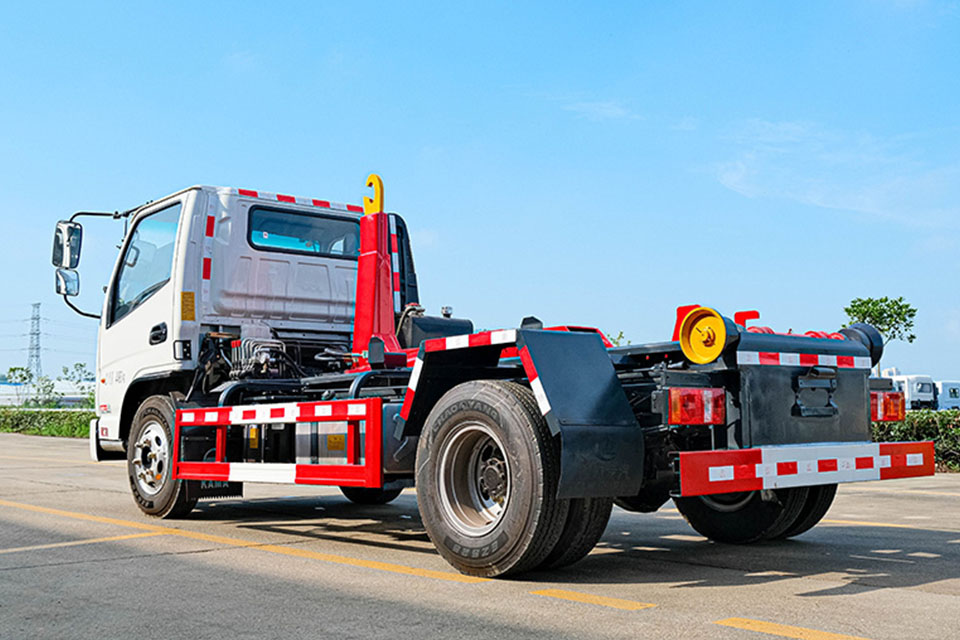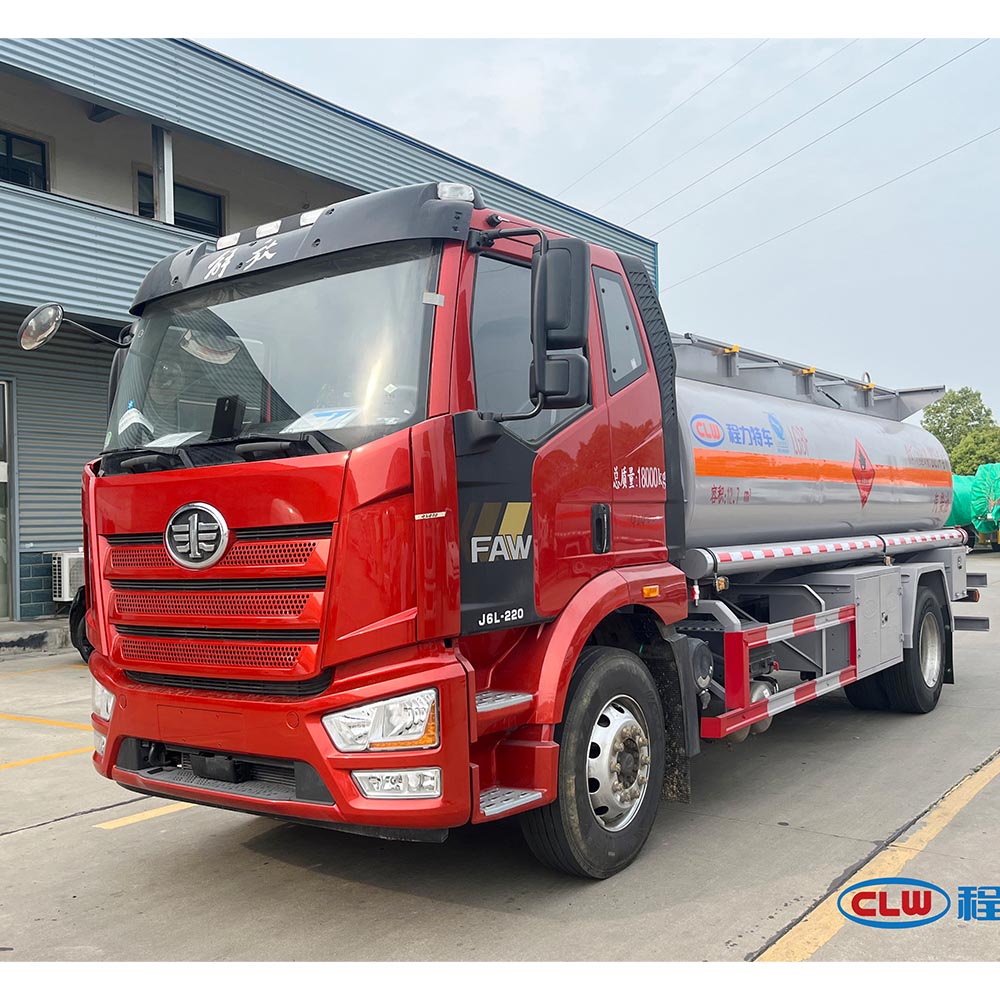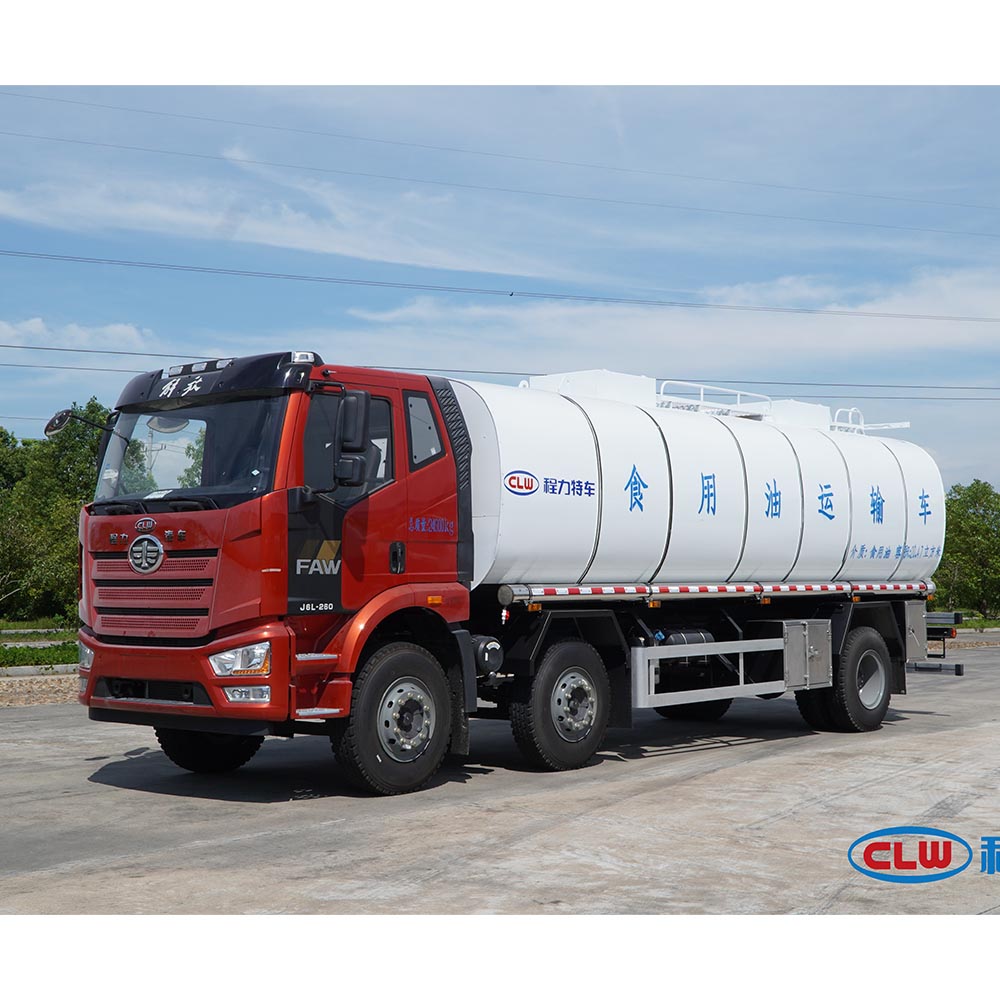-
Parc industriel automobile de Chengli
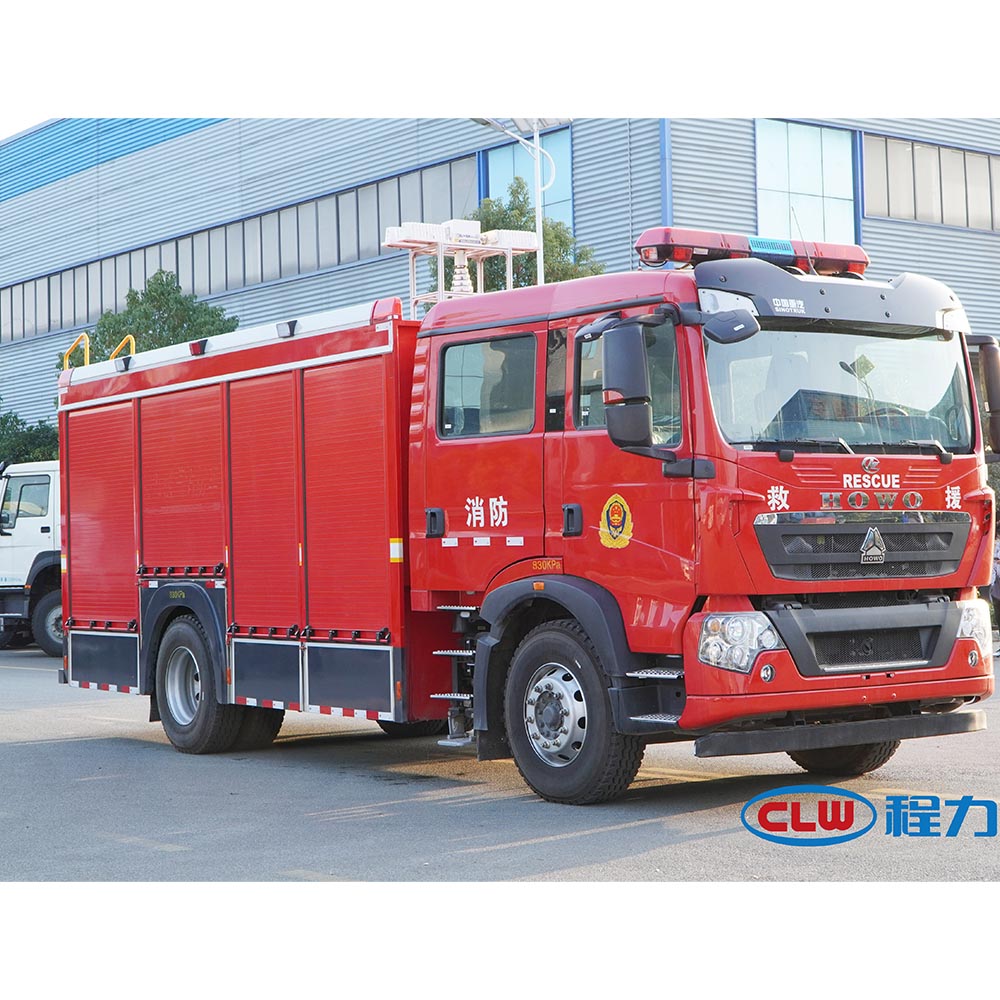
camions à huile usagée guide d'efficacité, de sécurité et de performance
Guide complet des performances des camions : Optimiser votre flotte pour une meilleure efficacité énergétique
Ce guide aborde les aspects cruciaux de la performance des camions, en mettant l'accent sur l'amélioration du rendement énergétique et le maintien de la longévité de votre flotte. Du choix de la bonne huile moteur à la mise en œuvre d'un programme d'entretien rigoureux, cet article fournit aux gestionnaires de flotte les connaissances nécessaires pour optimiser leurs opérations et garantir une performance sans faille de leurs véhicules commerciaux, y compris les camions de collecte des huiles usagées.
Table des matières
Pourquoi le choix de la bonne huile moteur est-il si crucial pour votre flotte ?
Sélection de la bonne huile moteur est la pierre angulaire d'une flotte et la gestion des déchets. L'huile appropriée joue un rôle rôle essentiel en garantissant la performance optimale et longévité de votre camions. L'huile moteur sert de lubrifiantIl réduit la friction entre les pièces mobiles et minimise ainsi l'usure. Elle contribue également à la propreté du moteur en mettant en suspension les contaminants et en aidant à dissiper la chaleur. L'utilisation d'une huile incorrecte peut entraîner une réduction de la consommation d'énergie et des émissions de gaz à effet de serre. efficacité énergétique, augmenté coûts de maintenanceet même de graves dommages au moteur, ce qui peut entraîner des temps d'arrêt et des réparations coûteux.
Les viscosité de l'huile est un facteur clé. Une huile trop épaisse risque de ne pas fournir une lubrification au démarrage, en particulier par temps froid, tandis qu'une huile trop fluide risque de ne pas protéger correctement à des températures de fonctionnement élevées et de ne pas être efficace en cas d'incendie. charges lourdes. Différents types de camions, en particulier robuste ont des exigences spécifiques en fonction de leur type de moteur et de leurs conditions d'utilisation. En choisissant l'huile de vidange recommandée, il est possible d'améliorer la qualité de l'huile de vidange. huile moteur pour chaque du véhicule les spécifications, gestionnaires de flotte peut assurer un fonctionnement optimal et de maximiser l'efficacité de la durée de vie de leur camions diesel.
Comment le passage à l'huile moteur synthétique peut-il améliorer le rendement du carburant ?
Passer à huile moteur synthétique est une démarche stratégique qui peut améliorer de manière significative la efficacité énergétique et de réduire les coûts d'exploitation. Par rapport aux huiles conventionnelles, huiles synthétiques sont conçus avec des bases et des additifs de meilleure qualité, ce qui permet d'obtenir de meilleurs résultats. lubrification et une protection dans une plus large gamme de températures. Cela signifie moins de friction dans le moteur, moins de perte d'énergie et, en fin de compte, un meilleur rendement énergétique. économie de carburant.
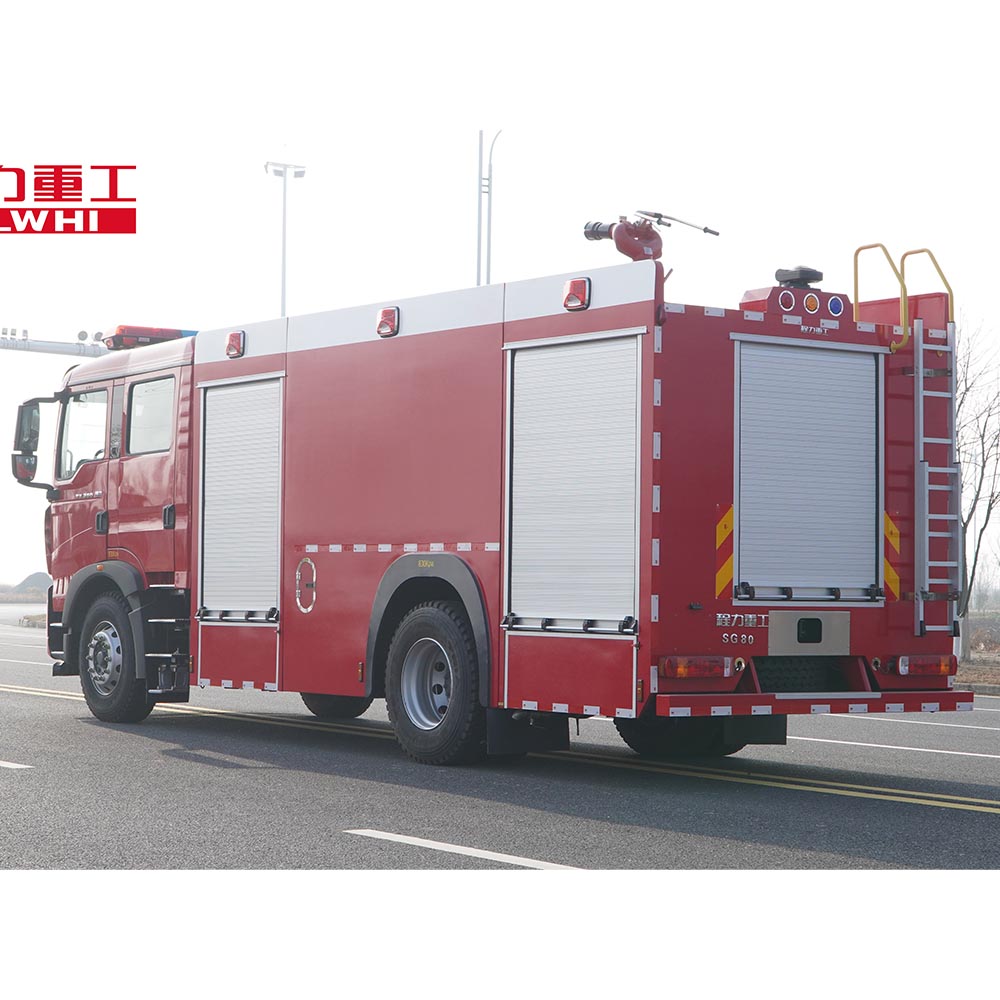
En outre, huiles synthétiques ont tendance à se dégrader plus lentement que les huiles conventionnellespermettant de prolonger la durée de vie de l'appareil. vidange d'huile intervalles. Cela permet non seulement de réduire la fréquence des les tâches de maintenance mais contribue également à la réduction des émissions de gaz à effet de serre. huile usagée la production. Lorsque vous maximisez l'efficacité, vous mettez plus de de l'argent dans votre poche. Faire de la passer au synthétique signifie une solution à long terme, et cela signifie que vous êtes intelligent dans la façon dont votre flotte est en cours d'exploitation.
Quel est le rôle de la filtration dans le maintien des performances et de la longévité du moteur ?
Filtration joue un rôle extrêmement important dans le maintien de la performance du moteur et longévité. Un appareil bien entretenu filtration garantit que le système huile moteur reste exempt de contaminants tels que la saleté, les particules métalliques et les sous-produits de la combustion. Ces contaminants, s'ils circulent librement, peuvent provoquer une usure prématurée des composants du moteur et réduire la durée de vie du moteur. du lubrifiant efficacité.
Des filtres à huile et à carburant de haute qualité sont essentiels. Ils doivent être remplacés conformément à la calendrier d'entretien recommandé. Investir dans systèmes de filtration haut de gamme peut éviter des réparations coûteuses et prolonger la durée de vie de votre diesel moteurs. En outre, des filtration contribue à une meilleure efficacité énergétique car une huile propre réduit les frottements et améliore le fonctionnement du moteur. En l'absence d'une filtrationmême de la plus haute qualité huile moteur peut être rapidement contaminé et perdre ses qualités protectrices.
Comment un programme d'entretien complet contribue-t-il à la performance optimale des camions ?
A calendrier d'entretien complet est l'épine dorsale de performance optimale du camion. Il ne suffit pas de réagir aux problèmes lorsqu'ils surviennent. Des actions régulières et proactives entretien est essentiel pour prévenir les pannes et prolonger la durée de vie de l'appareil. durée de vie de votre camions. Un système bien structuré calendrier d'entretien devrait inclure des contrôles et modifications de huile moteurles filtres et autres fluides, ainsi que inspections des pneus, des freins et d'autres composants essentiels.
À la suite d'une calendrier d'entretien recommandé garantit que les problèmes potentiels sont identifiés et traités avant qu'ils ne se transforment en problèmes importants. Cette approche permet non seulement de réduire les temps d'arrêt, mais aussi de minimiser les risques d'accidents. coûts de maintenance à long terme. Une bonne routine d'entretien tient également compte de facteurs tels que le type de travail effectué par l'entreprise. camion et les conditions environnementales dans lesquelles il opère. Dans le cas des camions à huile usagéeL'avantage supplémentaire est de s'assurer que tous les systèmes de l'entreprise sont en bon état de fonctionnement. camion-citerne travaillent en tandem pour assurer l'efficacité et l'efficience de l'action de l'Union européenne. sans couture des opérations.
Pourquoi l'inspection régulière de vos camions à huiles usagées est-elle essentielle ?
Régulière contrôle de votre camions à huile usagée n'est pas seulement une bonne pratique, c'est une nécessité. Il s'agit d'une nécessité. robuste sont confrontés à des défis uniques, notamment la manipulation de matériaux corrosifs et souvent dangereux. Régulièrement inspections permettent une détection précoce des problèmes potentiels tels que les fuites, les fissures dans les camion-citerne ou des dysfonctionnements dans les vide système d'alimentation en eau. L'identification rapide de ces problèmes permet d'éviter des réparations coûteuses, des temps d'arrêt et des risques potentiels pour l'environnement.
Un examen approfondi contrôle devrait inclure des vérifications de la du pétrolier l'intégrité, les tuyaux, les pompe à videet toutes les connexions connexes. Gestionnaires de flotte doit également s'assurer que tous les dispositifs de sécurité et les systèmes d'avertissement fonctionnent correctement. En effectuant fréquemment des inspections, opérateurs de flotte peuvent maintenir leur camions à huile usagée dans des conditions de fonctionnement optimales, améliorant ainsi leur performance et longévitétout en adhérant à d'importantes mesures de sécurité.
Comment rationaliser votre processus de gestion des huiles usagées ?
Rationalisation votre huile usagée est un aspect important du maintien d'une opération réussie et respectueuse de l'environnement. Des déchets efficaces La gestion englobe tous les aspects, de la collecte efficace à la gestion responsable de l'environnement. le recyclage ou élimination des huiles usagées. La mise en œuvre d'un système structuré réduit les risques de déversement, améliore l'efficacité et garantit le respect des réglementations environnementales. L'utilisation de camions à huile usagée est un bon premier pas, mais ils doivent être les bons. camion-citerne pour le poste.
Un élément clé de la rationalisation utilise le l'équipement adéquat. Investir dans camions à haute performance pour le transport des huiles usagées équipé de fonctions avancées et de robustes filtration est cruciale. Le fait de disposer des camions-citernes sous vide pour l'élimination et la collecte est un facteur clé dans la réduction des temps d'arrêt et l'augmentation de l'efficacité. Cela permettra non seulement de réduire les temps d'arrêt, mais aussi d'améliorer l'efficacité. optimiser mais contribuent également à une exploitation plus sûre et plus durable, ce qui permet de réaliser des économies sur les coûts de carburant. S'assurer les huiles usagées doivent être fiables est primordiale pour la réussite de votre entreprise.
Quels sont les indicateurs clés de performance que les gestionnaires de flotte doivent surveiller ?
La flotte Les gestionnaires ont besoin de contrôler certaines performances clés indicateurs de performance (KPI) pour optimiser leurs opérations et veiller à ce que camions fonctionnent efficacement. Ces indicateurs clés de performance fournissent des informations exploitables pour améliorer efficacité énergétique, réduire coûts de maintenanceet d'améliorer la productivité globale. Parmi les indicateurs clés de performance les plus importants, citons consommation de carburant, coûts de maintenance par kilomètre, le temps de fonctionnement des véhicules et la fréquence des pannes. Le suivi de ces éléments est essentiel pour garder une vue d'ensemble de la situation. flotte de camions se dérouler sans heurts.
Pour camions à huile usagéeLe Comité d'experts de l'Union européenne (CEI) a pour mission de contrôler l'efficacité de l'action de l pompe à vide, la capacité de l camion-citerneLe nombre d'heures de travail et le temps nécessaire pour effectuer les itinéraires de collecte sont également des indicateurs clés. En suivant ces indicateurs avec diligence et en utilisant ces données pour identifier les domaines à améliorer, gestionnaires de flotte peuvent prendre des décisions éclairées qui se traduisent par des avantages et des économies tangibles. En utilisant cartes de carburant pour suivre les dépenses est un autre moyen simple de suivre et de contrôler les dépenses.
Quelles sont les principales caractéristiques des camions à huiles usagées haute performance ?
Camions à haute performance pour les huiles usagées sont conçus avec plusieurs caractéristiques principales qui améliorent leur efficacité et leur fiabilité. Parmi ces caractéristiques, citons la robustesse pétroliers fabriqués à partir de matériaux qui peuvent capable de résister la nature corrosive des huile usagée. Ils sont également équipés de puissants pompes à vide avec un niveau élevé puissance de la pompe à videefficace filtration et des dispositifs de sécurité tels que les systèmes de confinement des déversements. Citerne de différentes tailles sont disponibles, ce qui facilite la mise en place d'un système de gestion de la qualité. choisir le meilleur camion pour votre flotte.
Une autre caractéristique essentielle est l'inclusion de systèmes avancés de surveillance et de contrôle qui permettent aux opérateurs de suivre les performances de l'appareil. camion et de détecter rapidement les problèmes potentiels. Camions à haute performance pour les huiles usagées sont également conçus pour être faciles à utiliser et à entretenir, avec des caractéristiques qui minimisent les temps d'arrêt et réduisent le besoin de réparations importantes. Les l'unicité des demandes de votre entreprise les l'équipement adéquat et la meilleure technologie.
Comment le bon équipement contribue-t-il à une gestion efficace des déchets ?
Disposer de la l'équipement adéquat est primordial pour les des déchets efficaces la gestion, en particulier lorsqu'il s'agit de huile usagée. Les l'équipement adéquat comprend non seulement camions à haute performance pour le transport des huiles usagées mais aussi les outils et machines connexes conçus pour une manipulation, un transport et une transformation efficaces des huile usagée. De la filtration à des systèmes puissants camions-citernes sous videchaque équipement jouent un rôle crucial afin d'assurer une opération sans faille et sûre.
L'utilisation d'équipements bien entretenus et récents maximise l'efficacité de l'activité de l'entreprise. flotte et aide minimiser les risques de déversements ou de fuites. Investir dans un équipement de qualité se traduit directement par des coûts d'exploitation plus faibles, moins de pannes et une amélioration de la qualité de l'air. efficacité énergétique. En outre, l'utilisation de la l'équipement adéquat garantit que le l'élimination des huiles usagées doit se faire dans le respect des réglementations locales, en protégeant à la fois l'environnement et la réputation de l'entreprise.
Pourquoi choisir nos camions à huiles usagées sur mesure ?
En tant qu'usines de fabrication de camions, nous fournissons des solutions spécialisées qui vont au-delà des produits standard. Nous sommes les principaux experts de l'industrie en créant camions à huile usagée sur mesure qui répondent aux besoins spécifiques et particuliers de nos clients. Nous proposons robuste équipement capable de résister les rigueurs d'une utilisation quotidienne, avec une technologie de pointe pour garantir les meilleures performances. Nous comprenons que chaque entreprise a l'unicité des demandes de votre entreprise Notre équipe travaillera donc en étroite collaboration avec vous pour concevoir et construire un système de gestion de la qualité. pétroliers qui répondent à des besoins spécifiques.
Notre camion à huile usagée personnalisé La conception prend en compte des facteurs tels que le volume des huile usagée manipulé, le type de terrain sur lequel le camion et toutes les caractéristiques spéciales qui peuvent être requises. Nous offrons tout ce dont vous avez besoin, de la camion-citerne corps et puissance de la pompe à vide à l'homme sophistiqué filtration et des systèmes de contrôle. En nous choisissant, vous optez pour l'expertise, la qualité et l'engagement à aider votre entreprise. flotte fonctionnent aussi efficacement que possible. Nos camions sont conçus pour offrir une valeur ajoutée et extraire ainsi de la valeur pour nos clients. Nous voulons vous donner tout ce qu'il faut savoiret vous donner ce que l'unicité de nos services.
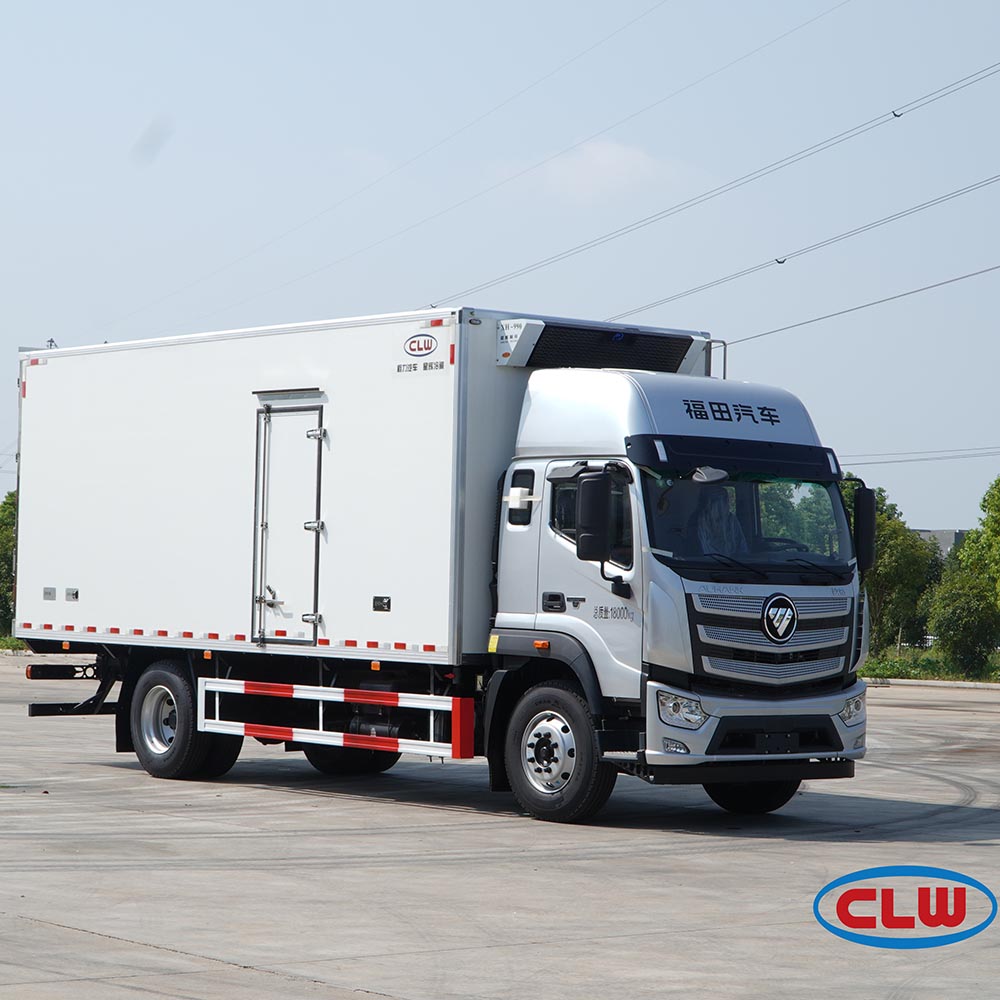
FAQ
Quel est l'intervalle de vidange recommandé pour les camions diesel ?
L'intervalle de vidange recommandé varie en fonction du type d'huile utilisé (conventionnelle ou synthétique), des conditions d'utilisation et des spécifications du fabricant. Pour la plupart des poids lourds, il est recommandé de changer l'huile conventionnelle tous les 15 000-20 000 miles, tandis que les huiles synthétiques peuvent souvent durer 30 000 miles ou plus. La consultation du manuel de votre véhicule est toujours la meilleure pratique.
Comment un entretien régulier permet-il de réduire la consommation de carburant ?
Un entretien régulier, tel que l'utilisation de la bonne huile moteurLe fait d'utiliser des pneus bien gonflés, de remplacer les filtres et de maintenir les pneus correctement gonflés réduit les frottements, optimise le fonctionnement du moteur et garantit que tous les composants fonctionnent de manière optimale. Il en résulte un fonctionnement plus économe en carburant, ce qui vous permet d'économiser de l'argent et de l'argent. de l'argent dans votre poche.
Quels sont les principaux avantages de l'utilisation d'une huile moteur synthétique dans mon parc automobile ?
L'huile moteur synthétique offre une meilleure protection contre l'usure, en particulier dans des conditions de température élevée. Elle améliore également lubrification, améliore efficacité énergétiqueet s'étend vidange d'huile intervalles, ce qui permet de minimiser coûts de maintenance.
Un camion d'huiles usagées bien entretenu peut-il améliorer l'efficacité et réduire les coûts d'exploitation ?
Oui, absolument. Un système bien entretenu camion à huile usagée garantit que le camion-citerneles tuyaux, et vide fonctionnent correctement, ce qui réduit les temps d'arrêt et évite des réparations coûteuses. Cela permet non seulement d'assurer la sécurité et le bon fonctionnement des systèmes, mais aussi de réduire les coûts de maintenance et d'entretien. des déchets efficaces mais contribue également à la rentabilité de l'entreprise.
À quelle fréquence dois-je inspecter mes camions d'huiles usagées ?
Une inspection approfondie de votre camions à huile usagée doit être effectuée quotidiennement avant le début des opérations. Une inspection plus détaillée, comprenant la vérification des tuyaux, des raccords et de l'équipement, doit être effectuée chaque jour avant le début de l'opération. pompe à videL'entretien de l'appareil doit être effectué toutes les semaines ou toutes les deux semaines, ou selon les recommandations de l'équipe d'entretien.
Quel est le meilleur système de filtration pour les camions d'huiles usagées ?
Les meilleurs filtration système pour camions à huile usagée est celui qui comporte plusieurs étapes, qui est conçu pour traiter une large gamme de contaminants et qui est facile à entretenir. Il est également très important que les systèmes de filtration haut de gamme sont choisis pour contribuer à la maximiser l'efficacité lors de l'élimination des huile usagée.
Résumé
- Choisir le bon huile moteur est essentiel pour performance optimale et longévité.
- Passer à huile moteur synthétique peut améliorer efficacité énergétique et de réduire coûts de maintenance.
- Filtration est la clé du maintien de la performance du moteur en éliminant les contaminants.
- A calendrier d'entretien complet est essentiel pour prévenir les pannes et maximiser les durée de vie.
- Régulière contrôle de camions à huile usagée permet d'identifier rapidement les problèmes potentiels.
- Rationalisation de la gestion des huiles usagées implique l'utilisation du matériel adéquat et le respect de pratiques efficaces.
- Gestionnaires de flotte devrait surveiller performances clés des indicateurs pour optimiser des opérations.
- Haute performance camions à huile usagée caractéristique robuste pétroliers, puissant pompes à videet des systèmes de sécurité.
- Les l'équipement adéquat est cruciale pour que le système de gestion de l'information soit efficace et conforme à la législation. déchets la gestion.
- Choisir un camion à huile usagée personnalisé offre une solution adaptée aux besoins uniques de votre entreprise.
- Régulière vidange d'huileet en utilisant haute performance huile pour engrenages et liquide de transmission améliorera l'efficacité de la la durée de vie du véhicule.
- L'utilisation d'un calendrier d'entretien vous permettra de assurer le bon fonctionnement de votre flotte.
- Avec un Un guide complet qui approfondit vous apprendrez à optimiser votre flotte.
- Nous vous encourageons à nous contacter aujourd'hui et faites l'expérience la différence entre nos camion à huile usagée personnalisé.
Liens internes :
- En savoir plus sur nos produits durables Camion de transport d'huile alimentaire.
- Considérez notre fiabilité Camion à huile en alliage d'aluminium pour votre prochain achat.
- Découvrez les avantages de notre Camion-citerne de sable de fracturation pour vos opérations.
- Découvrez nos Chengli Brand - Véhicule de transport de matériel de dynamitage.
- Jetez un coup d'œil à notre Camion de dépoussiérage multifonctionnel Chengli.
- Parcourez nos Camion-poubelle purement électrique ligne
En mettant en œuvre ces recommandations, vous pouvez vous assurer que votre flotte fonctionne de manière optimale, en maximisant l'efficacité et en minimisant les coûts. Contactez-nous dès aujourd'hui pour en savoir plus sur la façon dont nos solutions de fabrication de camions sur mesure peuvent profiter à votre entreprise.

